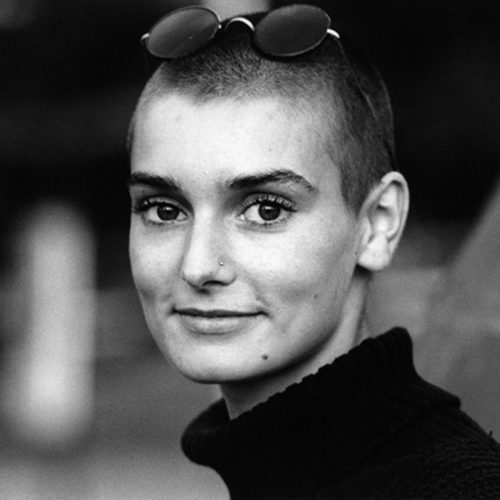It’s March, 1990, and the world is spinning at full speed. Mikhail Gorbachav has just been elected the first president of the Soviet Union. Boston’s Gardner Museum has been subjected to an early-morning heist which sees multiple Vermeer, Rembrandt, and other masterworks vanish. And elsewhere in the art world, tremors of an earthquake have begun.
Irish songstress Sinead O’Connor has just released her sophomore LP I Do Not Want What I Haven’t Got, led by the timeless single “Nothing Compares To U.”
Written by American musician Prince and offered to the young, exceptionally-abled O’Connor, the lead single proves to be both a beacon and blackout blind, allowing other, equally brilliant moments of artistry to rest underappreciated in the album’s shadows.
Let’s rewind 7 years to 1983. Colin Roach, a 21-year old black man living in Hackney, London, is riding his scooter home. He is pursued and stopped by police who, after observing him, confidently determine that the vehicle must be stolen. Muddied actions ensue and Roach ends up in the foyer of a police station, quickly expiring from a gunshot wound. Cue protests, questionable ‘facts,’ police statements, claims of suicide – debunked by the coroner – and calls for inquiries (which never did materialize.)
O’connor’s first album, 1987’s The Lion and The Cobra, has received enough acclaim in the UK to grab the attention of American labels and Prince himself. At the time of writing I Do Not Want What I Haven’t Got, she is free to follow the well-lit path of commercial viability, free to stay in the safe zone and not step on any cracks. O’Connor, being the true artist and activist that most endeavor to embody, does nothing of the sort.
After slow-burning and contemplating our way through 4 tracks, the first damning lyrics of “Black Boys on Mopeds” hit the listener in a manner similar to a 4:47 AM wakeup call.
“Margaret Thatcher on TV
Shocked by the deaths that took place in Beijing
It seems strange that she should be offended
The same orders are given by her”
This is clearly not going to be “Nothing Compares To U II.” It is, in fact, a 3-minute and 53-second reckoning aimed at England, the U.K., and humanity en masse.
England is commonly revered by North Americans as some sort of promised land. Our ancestral lands, where tea and eloquence flow like streams and manor-laden hills punctuate the landscape. The arrival of the first chorus sees O’Connor take steady aim at this misconception by suredly announcing that England’s not the mythical land of Madam George and roses/It’s the home of police who kill black boys on mopeds. A particularly pointed condemnation typically reserved for Catholic school children and dictators.
It is, however, the defiantly simplified pre-chorus that presents the most impactful foretelling of boomerang repercussions that plague any person with a voice or platform:
“These are dangerous days
To say what you feel is to dig your own grave.”
This statement alone leaves globe-sized space for reflection on societal blemishes of years past, layered under today’s perceived entitlement of never having your beliefs shaken, never exploring discomfort, and the danger of ‘‘cancel’ and ‘woke’ cultures.
As true in 2022 as it was in 1990, “Black Boys on Mopeds” – and every lyric within – is a bold study of life imitating art imitating life.







